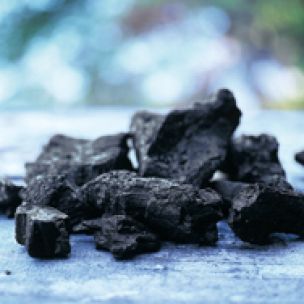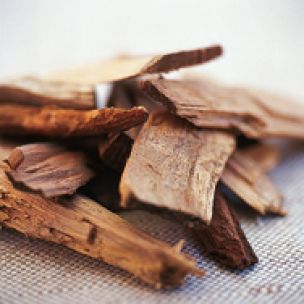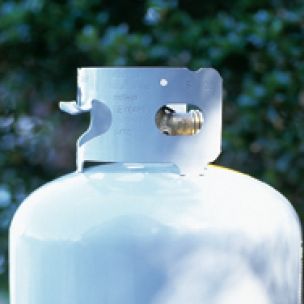Understanding the different types of fuel—charcoal, hardwood, wood chips and chunks, or propane—will help you make the best selection for your grill. Also, be sure to read the owner’s manual for specific fuels best suited for your type of grill.

Charcoal briquettes
Pillow-shaped, additive-free (usually labeled as “natural”) briquettes are the most readily available fuel for a charcoal grill. They’re a good choice for indirect-heat grilling because they burn at a steady temperature and remain ignited for a long time. Always avoid self-igniting briquettes, which can add an unpleasant flavor to the food. Store all briquettes in a dry place.

Hardwood or lump charcoal
Hardwood charcoal burns hotter and cleaner than briquettes. Grilling experts often choose this type of fuel because of its intense heat and the rich, smoky flavor it imparts to foods. Mesquite is the most common type of hardwood charcoal, but you can also find hickory, alder, oak, apple, and pecan. Break large chunks into smaller, more uniform pieces before lighting the fire to keep the heat more even. Pay close attention the first few times you use this type of charcoal—it cooks differently and will throw off sparks when first ignited. Store hardwood charcoal in a dry place.

Wood chips and chunks
Wood chips and chunks of hickory, apple, and mesquite add more flavor to food than any other grilling fuel. However, when used alone, wood can be tough to work with because of varying moisture content—too dry, and it will burn up before the food has a chance to pick up much smokiness. But soaking in water or other liquid (ex. apple juice or cider) before adding them to the fire ensures the wood will burn slowly and evenly, creating a steady flow of flavorful smoke. Chips and chunks are typically used in combination with charcoal briquettes to achieve more consistent heat and smoke.

Propane
If you have a gas grill, don’t let the charcoal folks bully you. Propane is efficient, environmentally friendly, and cost-effective. In addition, soaked wood chips, placed in a metal smoker box and positioned directly over a heat element, can add smoke flavor. Hardware stores and specialty-grill stores offer propane in portable, refillable tanks. When propane tanks are not in use, store them away from direct sunlight, but keep them out of garages or other enclosed storage areas. Your gas grill can also be hooked up to a outdoor natural-gas line, but it must be adapted mechanically to burn natural gas efficiently and provide sufficient heat. For safety reasons, hire a professional to do the hookup and adaptation.












